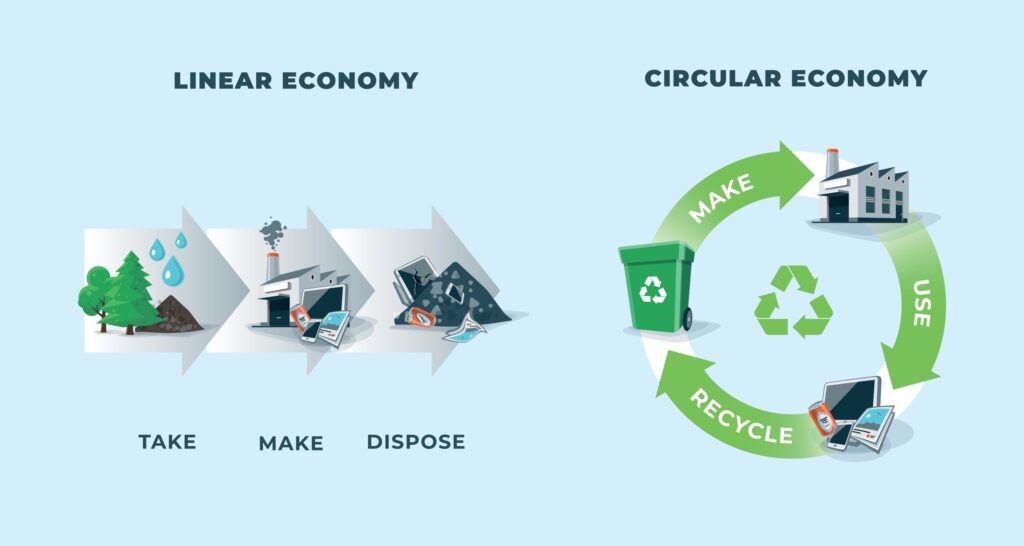LogiCommerce is trusted by global enterprise brands and wholesalers, across industries
In a world that is becoming increasingly aware of the importance of sustainability, eCommerce plays a crucial role in the transition towards a more circular economy. The circular economy is based on the concept of reducing, reusing, and recycling existing resources to minimize waste and maximize the value of products.
In this sense, eCommerce can play a key role in implementing sustainable practices and promoting responsible consumption. Below, we will explore strategies for implementing the circular economy in eCommerce and contributing to a more sustainable future.
Contents
One effective way to reduce waste in eCommerce is to promote the reuse and exchange of products. Online sales platforms can create dedicated spaces for the sale of used products, where consumers can sell items they no longer need but are still in good condition. This not only reduces the need to produce new products but also creates opportunities for other consumers to purchase products at lower prices. In addition, companies can consider implementing trade-in programs, allowing customers to return their used products and receive a discount when purchasing a new one.

Instead of discarding products when they break or stop working properly, eCommerce can promote product repair and maintenance. Companies can facilitate access to repair services, offer online repair manuals, or even provide spare parts so that consumers can repair their own products. This extends the lifespan of products and decreases the amount of waste produced. In addition, companies can offer extended warranties or maintenance programs to encourage customers to take care of and maintain their products in good condition.
ECommerce is characterized by the transportation of products through shipping. To reduce the environmental impact, it is important to implement sustainable packaging. Companies can utilize recyclable or biodegradable materials for packaging, thereby eliminating or reducing the reliance on plastics and other non-sustainable materials. In addition, it is possible to use reusable or recyclable packaging materials, such as returnable boxes or shipping bags made from recycled materials. It is also important to optimize the package size in order to minimize empty space and reduce the amount of packaging required.

ECommerce has the ability to educate and raise consumer awareness about the importance of responsible consumption. Companies can provide clear information about the sustainability of their products, including the origin of the materials used, responsible manufacturing processes, and associated environmental impacts. In addition, more sustainable alternatives can be offered, such as products that have green certifications or delivery options that have a lower carbon footprint. It is also important to involve consumers in the process, encouraging them to make informed choices and supporting initiatives such as conscious purchasing, recycling, and reducing unnecessary consumption.
Recycling is a crucial component of the circular economy, and eCommerce can actively contribute to this goal. Companies can establish online recycling programs, allowing customers to return end-of-life products for appropriate recycling. This process helps to close the life cycle of products and ensures that materials are recovered and reused in the manufacturing of new products. In addition, companies can partner with local recycling organizations or provide information and resources on how customers can properly recycle their products.
